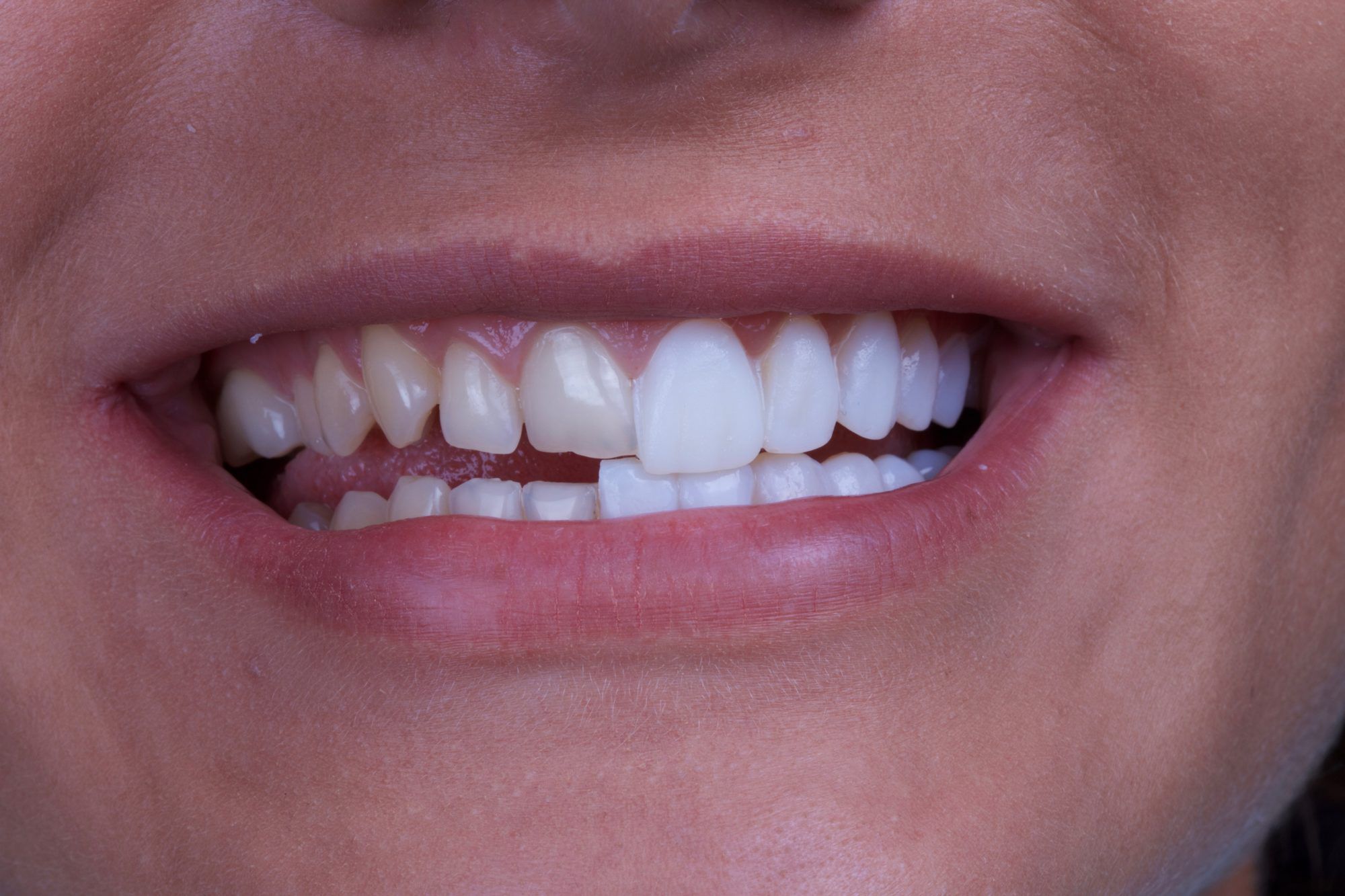The Complete Summary of Veneers: Types, Makes use of, and Their Effect on Your Smile
Veneers act as a preferred solution for individuals seeking to enhance their dental looks. These custom-crafted shells can successfully mask imperfections such as staining and spaces. With 2 main kinds offered, porcelain and composite resin, each offers distinct advantages and restrictions. The influence of veneers extends past plain appearance, affecting self-worth and social communications. Recognizing their advantages and types is essential. What might this suggest for one's general quality of life?
Comprehending Veneers: What They Are and How They Function
Veneers are thin coverings, commonly made from porcelain or composite resin, that are custom-crafted to fit over the front surface area of teeth. They offer both visual and functional functions, supplying an option for numerous dental flaws such as discoloration, voids, and small imbalances. By sticking to the tooth enamel, veneers develop a natural look while enhancing the shape and color of the teeth.
The process typically includes a first appointment, where a dental practitioner evaluates the client's demands and goes over wanted outcomes - Porcelain Veneers. Following this, a minimal amount of enamel might be gotten rid of to suit the veneer. Impacts of the teeth are then taken to guarantee an exact fit. Once fabricated, the veneers are bonded firmly to the teeth using a special oral adhesive. This treatment not only improves the smile's appearance yet likewise aids shield the underlying teeth from more damages, making veneers a prominent option for lots of looking for a smile makeover
Sorts of Veneers: Porcelain vs. Composite Material
The difference between porcelain and composite resin veneers exists in their material composition and qualities. Each kind offers differing levels of sturdiness, price, and durability, influencing individuals' choices based on their private needs. Understanding these distinctions is necessary for making an informed choice relating to dental improvements.
Product Distinctions Clarified
While both porcelain and composite material veneers serve the very same cosmetic purpose, they vary substantially in material residential properties, sturdiness, and aesthetic outcomes. Porcelain veneers are crafted from a ceramic product that mimics the natural transparency of teeth, providing a realistic look. Their smooth surface area is resistant to discoloration, making them an attractive choice for those seeking a lasting aesthetic. On the other hand, composite resin veneers are made from a tooth-colored plastic product, offering convenience and convenience of application. They may not attain the exact same level of illumination or clarity as porcelain. Additionally, composite veneers can be much more easily formed and repaired, making them an extra flexible alternative in certain dental circumstances. Each type provides special advantages customized to private preferences.
Long life and Durability
When contrasting porcelain and composite resin veneers, longevity and resilience are substantial elements. Porcelain veneers are understood for their stamina, usually lasting 10 to 15 years with proper treatment. Their strength against cracking and staining makes them a preferred choice for individuals looking for long-term results. On the other hand, composite resin veneers generally have a shorter life expectancy, balancing 5 to 7 years. While they can be fixed extra easily if damaged, they are a lot more prone to wear and discoloration with time. The option between these materials typically depends upon the person's way of living, aesthetic objectives, and upkeep preferences. Inevitably, recognizing the distinctions in longevity and durability can direct patients in selecting the veneer type that finest suits their requirements.
Cost Contrast Insights
When picking between porcelain and composite material veneers, expense is an essential factor to consider. Porcelain veneers normally vary from $800 to $2,500 per tooth, mirroring their toughness, aesthetic appeal, and resistance to discoloration. These veneers need a much more substantial treatment and specialized laboratory job, adding to their greater price. In contrast, composite material veneers are usually a lot more economical, setting you back in between $250 and $1,500 per tooth. They can be used in a single go to, which decreases labor expenses. Nonetheless, composite veneers may require more regular replacements, potentially increasing long-term costs. Ultimately, the choice between porcelain and composite resin veneers depends upon specific spending plans and preferred end results, balancing first costs against longevity and aesthetic results.
The Advantages of Choosing Veneers for Your Smile
Choosing veneers uses substantial benefits for those looking for an enhanced smile. Their enhanced aesthetic allure can transform the look of teeth, while their stain-resistant homes ensure a lasting brightness - What Are Veneers. This combination makes veneers a prominent choice for individuals seeking to achieve a perfect smile
Enhanced Visual Appeal
Veneers frequently emerge as a preferred remedy due to their transformative visual advantages when people look for to boost their smiles. These slim coverings, generally constructed from porcelain or composite material, can properly conceal imperfections such as chips, gaps, and misalignment. By mimicking the natural appearance of teeth, veneers offer a smooth, radiant smile. Their personalized nature permits a tailored technique, allowing people to select shades and forms that best fit their face attributes. In addition, veneers can create a consistent look, improving overall facial balance. This visual enhancement not only increases self-confidence however can also positively influence individual relationships and social interactions, making veneers a preferred selection for those seeking to achieve a brighter, much more attractive smile.
Tarnish Resistance Conveniences
Veneers not only enhance visual charm but additionally use substantial tarnish resistance, making them an eye-catching alternative for individuals concerned regarding keeping an intense smile. Made up of resilient materials such as porcelain or composite material, veneers are less permeable than all-natural teeth, which helps prevent the absorption of stains from typical culprits like coffee, tea, and merlot. This intrinsic tarnish resistance enables people to appreciate their favorite drinks without stressing over discoloration. Porcelain Veneers. In addition, the smooth surface area of veneers makes them much easier to tidy, further improving their long life and keeping their beautiful appearance. As an outcome, veneers provide a useful service for those looking for both appeal and capability in their dental treatment
The Process of Getting Veneers: What to Expect

Although the process this hyperlink of getting veneers might appear intimidating, recognizing the actions involved can reduce concerns. Originally, an examination with a dental practitioner is required to identify if veneers are the ideal option for the individual's oral issues. During this visit, the dental professional will certainly review wanted end results and take perceptions of the teeth.
Next, a second consultation is set up for tooth preparation, where a tiny amount of enamel is generally removed to fit the veneers. Short-lived veneers might be put while the custom-made ones are crafted in an oral lab, which typically takes a number of weeks.
As soon as ready, the dental practitioner will position the veneers, making certain appropriate fit and shade prior to bonding them to the teeth using a special adhesive. After final adjustments, the dentist will certainly provide guidance on care. Comprehending these actions can assist patients really feel much more comfortable and notified throughout the veneer process.
Upkeep and Treatment for Your Veneers
Maintaining veneers needs constant care to assure their durability and look. Appropriate oral health is vital; cleaning twice daily with a non-abrasive tooth paste and flossing routinely assist avoid plaque build-up around the veneers. Furthermore, routine dental check-ups are crucial for keeping track of the condition of the veneers and attending to any kind of possible problems early.
When biting to stop damage, people must avoid hard foods and extreme pressure. It's also a good idea to restrict intake of discoloring materials, such as coffee, tea, and red a find more info glass of wine, as these can influence the veneers' color over time.

Changing Your Smile: Real-Life Impact of Veneers
A radiant smile can greatly boost one's self-confidence and general look. For many individuals, veneers function as a transformative remedy, efficiently addressing various dental worries such as staining, voids, and misalignment. These thin shells, personalized to fit over the front of the teeth, can develop an unified and visually pleasing smile.
Real-life situations illustrate the extensive influence veneers can have. Individuals often report an immediate boost in self-worth and social communications following their treatment. The newly found self-confidence can result in even more opportunities in individual and professional life, as people feel more inclined to involve and reveal themselves.
In addition, the emotional advantages extend past plain look; several experience enhanced psychological wellness as they embrace their smiles. Veneers not only enhance physical attributes yet also contribute considerably to total top quality of life, emphasizing their worth in cosmetic dental care.
Often Asked Inquiries
For How Long Do Veneers Usually Last Prior To Requiring Substitute?
Veneers generally last in between 10 to 15 years prior to needing replacement. Variables such as oral hygiene, dental routines, and the sort of material made use of can influence their long life and total sturdiness. Normal dental exams are suggested.
Can Veneers Be Removed, and if So, Just how?
Yes, veneers can be gotten rid of. A dentist commonly uses customized devices to carefully remove them from the teeth, making sure very little damages to the underlying enamel, commonly complied with by needed modifications or reconstructions for optimal looks.
Are Veneers Suitable for Everyone's Dental Condition?

Will Getting Veneers Pain or Require Anesthetic?
Getting veneers normally includes minimal pain, and several clients receive regional anesthesia to ensure a pain-free experience. Level of sensitivity might take place momentarily later, but the majority of discover the process tolerable and are pleased with the results.
Exactly How Do Veneers Affect Tooth Sensitivity After Positioning?
Veneers can temporarily increase tooth level of sensitivity as a result of the elimination of enamel and the bonding process. Many individuals experience a decrease in level a knockout post of sensitivity in time as the teeth adapt to the brand-new veneers.
Veneers are thin shells, commonly made from porcelain or composite material, that are custom-crafted to fit over the front surface of teeth. Porcelain veneers are crafted from a ceramic material that simulates the natural translucence of teeth, supplying a natural look. Porcelain veneers generally vary from $800 to $2,500 per tooth, mirroring their resilience, visual charm, and resistance to discoloration. In contrast, composite material veneers are generally much more cost effective, setting you back between $250 and $1,500 per tooth. Composed of durable products such as porcelain or composite resin, veneers are much less porous than natural teeth, which aids protect against the absorption of spots from usual culprits like coffee, tea, and red a glass of wine.